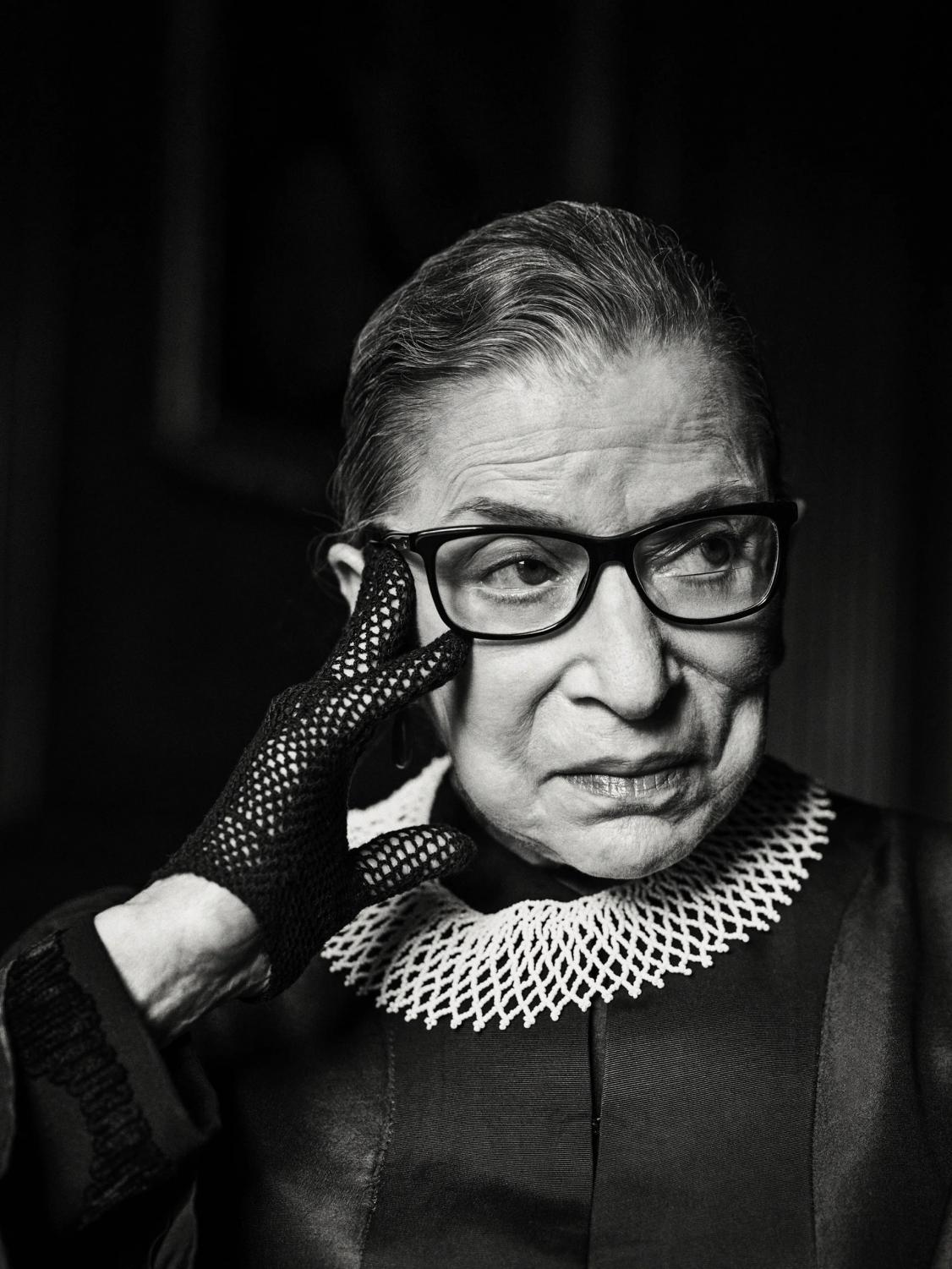On Sept. 18, the United States woke up to news that U.S. Supreme Court Justice Ruth Bader Ginsburg had died.
“When I heard the news that she had passed away my heart broke over the notion and idea that she carried the weight of the United States of American on her shoulders,” said Dean of the School of Fine Arts and Communication Joy Qualls.
Ginsburg was the second ever female associate in the U.S. Supreme Court of Justice. Her legacy, although vast, is marked by her persistent fight for equal rights on the basis of gender.
EQUAL RIGHTS
To many, Ginsburg served as an inspiration. She paved the way for women in the workplace and was a leader beyond her career. She stood out for being the first woman to attend both the Harvard School of Law and Columbia School of Law, where she participated in both law reviews.
Ginsburg also achieved much more beyond her education, winning five out of six cases she fought in the Supreme Court before she was ever an associate. According to Qualls, Ginsburg’s impressive record continued throughout the extent of her time in the Supreme Court.
“One of the things that I admire so much about her is her very first case before the Supreme Court,” Qualls said. “It was a gender case, but it was a gender case where her client was a man who was a caregiver for, I believe, his elderly mother. And he wanted to collect social security benefits or government benefits for being a caregiver, but because he was a man, he was denied those benefits.”
Qualls added that back then, women were the sole receivers of caregiving benefits due to expected gender roles. While men worked 9 to 5 jobs, women mostly stayed home and cared for children, so this financial aid was only available to them. Ginsburg argued on the basis of gender that the man deserved equal protection.
“What I love about that is that it helps us understand that to advance women we also benefit by advancing men to be able to exist in a role that we typically think of as female,” Qualls said.
Qualls further explained that without Gisburg, women would not be able to be independent of a male companion for simple tasks.
“I think the things that she did to provide autonomy for women have paved the way for you and I in ways that are not just based on achievement. Yes she paved the way as a supreme court justice, yes she achieved the highest level of work in her profession,” Qualls said. “Those things are all important, but at the end of the day the things she fought for was my personhood, my ability to be recognized as a full functioning citizen.”
GOVERNMENT
Ginsburg’s fight for gender-based equality echoes throughout Biola’s campus, where nine student-led organizations are led by women this year. Although the cases Ginsburg reviewed changed laws across the U.S. in local communities, her position in the federal government broke the mold, allowing more women in places of governmental power.

Student Government Association senior vice president Gretchen Ferguson shared that Ginsburg’s journey, in many ways, inspired her to keep pushing forward.
“She never backed down in the face of adversity… she never stopped fighting so other women didn’t have to go through what she did,” Ferguson said.
This year SGA is run by president Keren Godwin and Ferguson, two women. Ginsburg’s time in government paved the way for women like Godwin and Ferguson to feel empowered to lead through governmental positions. Godwin explained that even if there is still some prejudice against women in power, Ginsburg was a catalyst for change.
“When Gretchen and I won the SGA presidency and vice presidency, I think one of the girls who was on our campaign team was mentioning that she had told her cousin who goes to another university about our win, and her cousin was shocked that women could be the president and vice president of the SGA,” Godwin said. “I see how that idea of ‘can women be in positions of leadership’ is still perpetuated, but I think we are in a very different position than we would have been if RBG hadn’t fought for our rights to be in equal places of leadership.”
GRIT
SGA isn’t the only female-run organization on campus. GRIT, Biola’s resource collective for women and Biola’s Black Student Association rely on the leadership of female students this semester.
GRIT was born four years ago to empower women and inspire them to lean into their God-given callings, said GRIT’s staff writer Logan Lusk. GRIT’s written content coordinator Rachel McCready-White agreed, noting that Ginsburg’s decades-long work helped to normalize gender equality, creating a space for an organization like GRIT to even exist.
“Maybe when Ruth Bader Ginsburg was one out of nine women in a class of 500 men at Harvard she probably could have used something like GRIT,” Lusk said. “The hope of GRIT is to be a space of encouragement and empowerment for the future Ruth Bader Ginsburg’s at Biola.”
LASTING IMPACT
While Ginsburg’s passing was unexpected, Qualls and Ferguson urged young women to keep fighting for their rights and futures.
“You know I think we’re living in a time that is dominated by a culture of fear, and the thing that I think we can learn from both RBG as well as the present moment that we’re in, especially as young women, is there are legitimate concerns that you may have about what the future looks like, but you cannot walk in fear,” Qualls said. “And you cannot let the messaging coming to you be ‘be afraid, be afraid, be afraid,’ especially as followers of Jesus, we are told over and over again be not afraid, be strong and be courageous.”
Ferguson also hopes young women will keep pressing forward and pursuing their passions regardless of the hardships they may face.
“Your hard work now and the adversity you’re facing is going to make the door so much wider and the walk so much easier for women who are stepping in after you,” Ferguson said. “When people call you ‘bossy’ it’s not a negative connotation, it holds a negative value, but it’s just describing leadership.”













